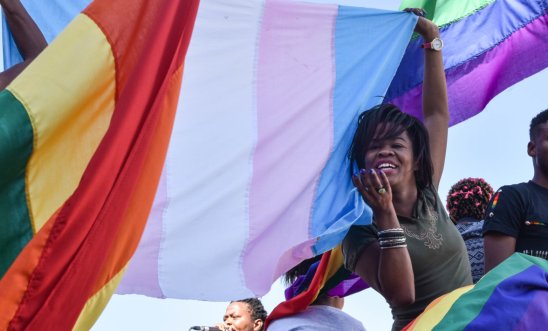
Press releases
Namibia: decision to overturn 'sodomy' laws is a victory for human rights

Responding to the decision by the Namibia High Court to overturn the country's colonial-era “sodomy” and “unnatural offences” laws which had criminalised same-sex sexual conduct between consenting adults, Amnesty International’s Deputy Regional Director for East and Southern Africa, Khanyo Farise, said:
"The Namibia High Court decision to overturn these laws and decriminalise consensual same-sex sexual conduct is a victory for love, for equality and for human rights.
"This ruling is a step toward ending discrimination in equal access to health care and other social services, and ensuring that all people in Namibia can live their lives in dignity and choose their partners without fear of reprisals.
"Namibia now joins the many Southern African countries which have decriminalised consensual same-sex sexual conduct.
"Nevertheless, violence and discriminatory legislation followed a court ruling last year concerning the rights of LGBTI persons in Namibia. The authorities must ensure the safety of LGBTI persons in Namibia and hold accountable anyone who violates their rights."
The verdict aligns Namibia's laws with its constitution, the African Charter and international human rights law, all of which prohibit any form of discrimination.
Fierce anti-LGBTI backlash
In June 2022, Namibian LGBTI activist Friedel Dausab filed the case challenging the constitutionality of the country’s laws criminalising consensual same-sex sexual conduct and petitioning the court to nullify all previous convictions under them.
Namibia has experienced a fierce anti-LGBTI backlash in the past year, primarily driven by faith and religious leaders, following a May 2023 Supreme Court decision recognising same-sex unions performed abroad.
Namibia’s parliament responded by passing two bills restricting the right to marriage equality for LGBTI people in June 2023. The bills seek to define marriage as a union between a man and a woman, discriminate against trans people and criminalise any support, celebration or promotion of same-sex unions with up to six years in jail and hefty fines.
Further, reports from Namibian activists suggest police have not permitted the same freedom of assembly for LGBTI groups as for religious gatherings. Amnesty has also received distressing accounts of violent cyber-attacks and a wave in online harassment against LGBTI people, as well as frequent targeting by politicians during the run up to the November 2024 elections.